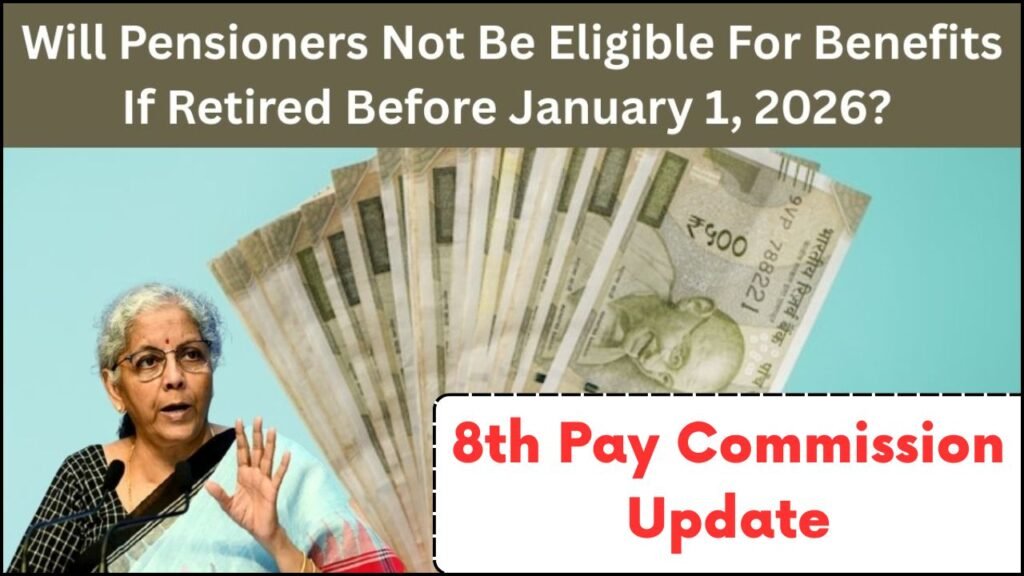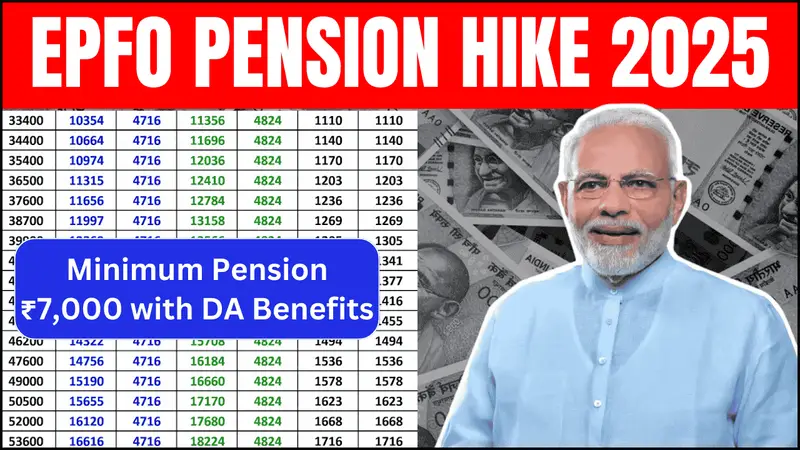
The anticipated arrival of the 8th Central Pay Commission (CPC) has sparked widespread discussion, particularly concerning how it will affect central government employees and pensioners. With over 50 lakh current employees and approximately 65 lakh pensioners waiting for the final recommendations, the 8th CPC is poised to make a significant impact on both salaries and pensions.
One question dominating headlines and social media is whether retirees who exit service before January 1, 2026, will be eligible for the upgraded benefits under the 8th CPC. Let’s break down the facts, clarify the confusion, and explore the official stance of the government.
What Sparked the Confusion?
Speculation began when discussions around the Finance Bill 2025 surfaced, raising concerns about a potential distinction being made between:
- Those who retire before January 1, 2026, and
- Those who retire on or after January 1, 2026.
This led to fears that early retirees might be excluded from the benefits of the upcoming pay commission revision, including pension hikes. Such a scenario reminded many of the 6th Pay Commission, where disparities in pension benefits existed based on the retirement date.
Government’s Clarification: No Need for Panic
Addressing these growing concerns, Finance Minister Nirmala Sitharaman provided a direct clarification in the Rajya Sabha, putting many fears to rest. According to her statement:
- The amendments in the Finance Bill 2025 were merely procedural, meant to reinforce existing pension guidelines.
- There is no plan to deny pension benefits of the 8th Pay Commission to individuals based on their retirement date.
- The government is committed to the uniform treatment of pensioners, as was the case during the 7th Pay Commission, which ensured parity regardless of retirement timing.
Her assurance implies that the January 1, 2026 cut-off will not be used to create two classes of pensioners, thus eliminating fears of being left out for those retiring beforehand.
What Does the Finance Bill 2025 Really Say?
The Finance Bill, passed by the Lok Sabha on March 25, 2025, included a clause that has caused widespread misinterpretation. Here’s what it actually does:
- It confirms the legal authority of the Central Government to design pension rules.
- It allows for distinctions in pension calculations if they arise from officially approved Pay Commission recommendations.
- These distinctions, if any, can be applied retrospectively, dating back to June 1, 1972.
However, this clause doesn’t indicate a plan to exclude anyone from the 8th CPC benefits. Instead, it gives the government flexibility to manage pensions lawfully and in alignment with constitutional provisions.
Expected Changes Under the 8th CPC
One of the most important elements in the pay and pension revision is the fitment factor—a multiplier applied to the current basic pay or pension to arrive at the revised amount.
Here’s what experts are predicting based on early proposals:
| Proposed Fitment Factor | Revised Minimum Basic Pay (₹) | Revised Minimum Pension (₹) | % Increase |
|---|---|---|---|
| 2.00 | 36,000 | 18,000 | 100% |
| 2.08 | 37,440 | 18,720 | 108% |
| 2.86 | 51,480 | 25,740 | 186% |
The current fitment factor under the 7th CPC is 2.57x, and many employee unions, including the National Council-JCM, are pushing for a minimum 2.0x for the 8th CPC. If a higher factor like 2.86x is adopted, pensions and salaries could increase dramatically, significantly boosting the financial well-being of retirees.
Why Is This Issue Crucial for Pensioners?
For millions of retirees, pensions are their primary or only source of income, and any changes can directly affect their standard of living. Rising medical costs, inflation, and everyday expenses make timely pension revisions essential. A delay or denial of these benefits would have significant negative consequences.
This is why clarity on eligibility is so important. Ensuring equity among pensioners, regardless of when they retired, has become a key demand, and the government’s current stance appears aligned with this objective.
The 7th Pay Commission set a precedent for fair treatment by not differentiating between pensioners based on retirement dates. The expectation now is that the 8th CPC will uphold this parity and avoid the discriminatory practices seen during the 6th CPC.
What to Expect Next?
The 8th Pay Commission’s final structure, recommendations, and implementation roadmap are expected to be revealed in late 2025, with benefits effective from January 1, 2026. Until then, the government is collecting feedback from various ministries, including Home, Finance, and Defence, to design a pay and pension structure that reflects current economic realities and public service needs.
Final Notes
The 8th Pay Commission represents a major opportunity for salary and pension reform. While initial rumors caused some concern among retirees, the government’s official statements have brought clarity. Pensioners retiring before January 1, 2026, will not be excluded from the upcoming revisions. As the final recommendations draw closer, it’s important for pensioners and employees to stay informed and aware of official updates—because fair treatment and financial security are not just expectations but rights.

Mangesh Garg is a passionate writer known for captivating stories that blend imagination and reality. Inspired by travel, history, and everyday moments, He crafts narratives that resonate deeply with readers



